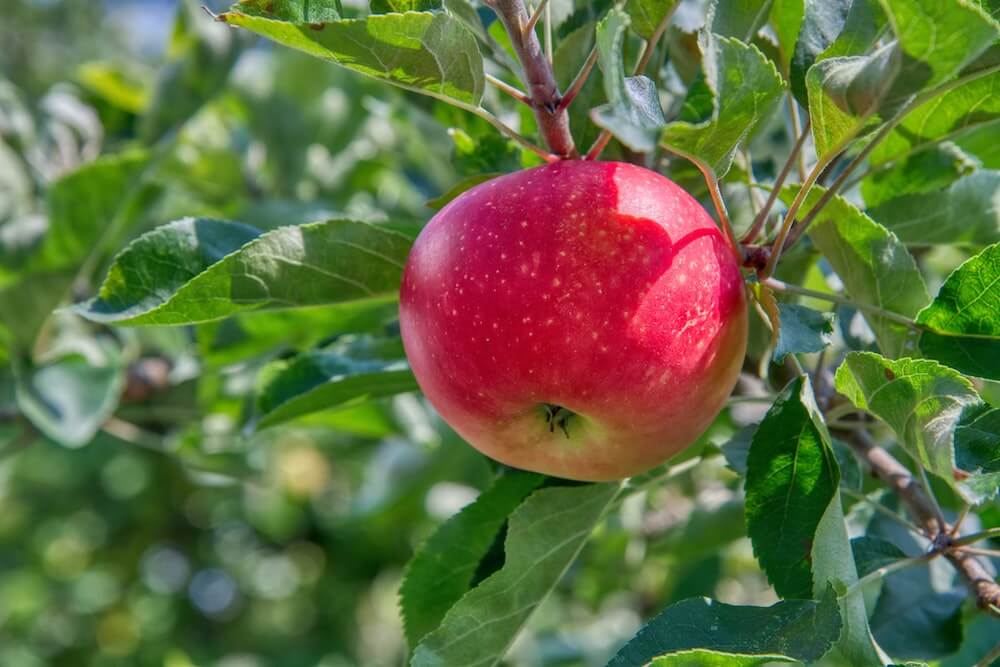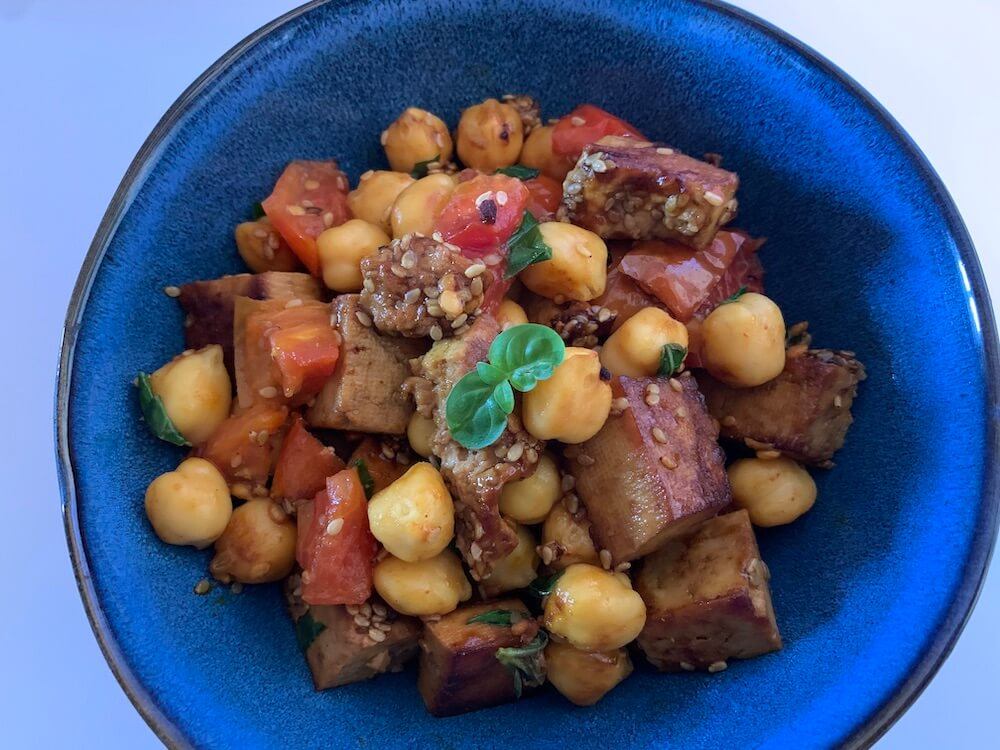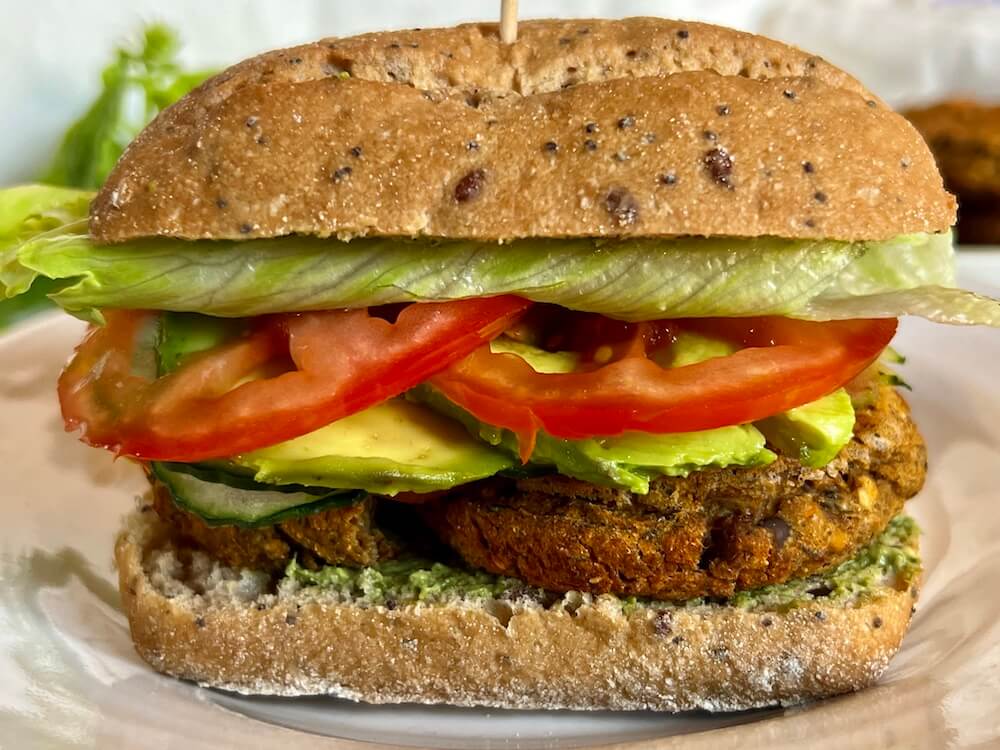Menopause sucks right? These 5 steps to beat menopause naturally are a result of sharing of my own journey, and how I either alleviated, or eradicated my symptoms completely.
I mean don’t get me wrong – I’m human – I’ve experienced hot flashes and weight gain etc., but somehow I don’t think I’ve suffered as much as some of the people I hear from.
The myriad of symptoms that can raise their ugly heads during menopause (or rather perimenopause) is extensive to say the least, but we don’t usually stop to consider them until they’re upon us.
I hope that by sharing my story I can help you to prevent or reverse many of the symptoms of menopause and traverse through this life-changing journey using natural means with minimal disruption to your daily life.
But before we get into that, let’s clarify some facts surrounding menopause . . .
Table of Contents
What is the Menopause?
The word menopause is often loosely used to describe three phases: perimenopause, menopause and post menopause, but actually, to be correct, ‘menopause’ only refers to the first 12 months without a period. Not the time leading up to it and not the time after it.
During menopause, the ovaries stop releasing an egg into the fallopian tubes and the monthly cycle ceases.
The ovaries are responsable for the production of the hormones oestrogen, progesterone and testosterone, and the change in the balance of these hormones causes us to experience the symptoms associated with menopause (the 3 phases), as the body adjusts to reduced levels of oestrogen.
What’s the Difference Between Perimenopause, Menopause and Post Menopause?
Perimenopause refers to the transitional period when the body’s beginning to go through the change but isn’t yet in full menopause. Perimenopause can go on for up to 10 years or last only a few months but according to most sources the average duration for perimenopause is 4 years.
Perhaps confusingly, women will experience what we call menopausal symptoms while in perimenopause. That’s just the way it is. Perimenopause isn’t a word most people are familiar with.
In order to be accurate, the title of this post should actually really read: 5 Steps to Beat Perimenopause, Menopause & Post Menopause! Wow what a mouthful!
And let’s face it, almost everyone refers to the change as menopause, even if it’s not actually 100% accurate.
In truth, menopause refers to the first full 12 months without menstruation, so it can only be confirmed retrospectively when the 12 months are complete.
The funny thing is though, once you’ve confirmed your 12 months, at that point, you’ve already been through menopause so you’re now considered post menopausal!
The symptoms of menopause don’t just suddenly stop when you’re post menopausal: they may take several years to cease.
So although we have 3 names (perimenopause, menopause & post menopause), the technical distinction depends purely on the absence of menstruation, not on the presence or absence of symptoms. And the most convenient way to address the whole thing is by using the word menopause. So that’s what most people do.
After all, if I said I were post menopausal you’d most likely think I’d put all the symptoms behind me, right? And if I said I were in perimenopause, you might think I’m just at the beginning of the journey rather than already being fully symptomatic and months without a period.
Common Symptoms in (Peri)menopause
Some women go through the whole menopause experience with almost no symptoms (a breeze my dear!) other than a disruption to their monthly period, while others have a terrible time and even struggle to hold together their working life or home life.

Some women’s lives get totally disrupted by depression, irritability, mood swings, lack of concentration, panic, loss of confidence and other distressing consequences of hormonal havoc. Even more suffer from physical symptoms such as weight gain, hot flashes, night sweats & insomnia.
Most people only become aware that they’re in perimenopause when they actually start to get symptoms. And even then, those symptoms are often misdiagnosed or assumed to be from another cause, unrelated to menopause.
I have friends who found it so impossible to manage their life due to heavy night sweats, hot flashes and lack of sleep, that they opted for HRT (hormone replacement therapy). (Incidentally the friends are not vegan or plant based.)
They were both happy with the decision, and of course it’s vital for everyone to follow their own path, but for me, I knew I wanted to find a natural balance to this life-change which I’m going through.
The Most Frequent Symptoms of Perimenopause
Each person will have their own story to tell, but many will share some of the symptoms listed below.
- fatigue
- inability to concentrate
- mental confusion (aka brain fog)
- forgetfulness
- trouble sleeping or full blown insomnia
- hot flashes
- night sweats
- heart palpitations
- irritability
- depression
- vaginal dryness
- lower sex drive
- stress incontinence (i.e. on coughing or sneezing)
- urge incontinence (the sudden need to urinate and inability to wait)
- irregular periods or prolonged heavier periods
- osteoporosis
- headaches
- increased belly fat
Although these symptoms can be extremely disruptive and unpleasant, they can also be quite obscure.
How many people really understand that their tiredness is a physical symptom rather than just tiredness? Insomnia more than just a sleepless night? And when you don’t want sex, maybe you just think you’re annoyed at your partner, or too tired; rather than associating it with perimenopause?
Virtually all the symptoms, except the hot flashes and night sweats, can be brushed away under the assumption that they’re something else.
And the brain fog could even have you worrying that you’re getting early onset Alzheimer’s.
It’s vital to recognise that your symptoms are part of menopause.
Can a Vegan Lifestyle Help with Menopause?
It’s now well known and recognised that a whole foods plant based diet can boost health and prevent illnesses such as cardiovascular disease, as well as strengthen the immune system, help with weight management and reduce the risk, or even reverse type 2 diabetes as well as many other chronic diseases.
And if you’re overall healthier, what are the chances that your system will be able to cope better with the disruption to your hormone levels during menopause?
What are the Health Benefits of a Plant Based Diet?
A well planned plant based diet provides all the nutrients you need for optimum health with low (or no) levels of saturated fat, and almost none of the bad cholesterol associated with an omnivore diet.
A medical journal paper published by the Permanente Journal as long ago as 2016 was issued as a guide for physicians regarding the benefits of a plant based diet. The introduction to the paper is cited below . . .
Because of the ever-increasing body of evidence in support of the health advantages of plant-based nutrition, there is a need for guidance on implementing its practice. [as well as] . . .the myriad benefits of a plant-based diet . . .
The Permanente Journal
Some advantages of a plant based diet are:
- lowered heart disease mortality
- weight management
- reduced risk of most chronic disease
- reduced cases of obesity
- reduced risk (and even reversing) advanced coronary heart disease
- less risk (and reversal of) type 2 diabetes
- overall reduced use of medication
- boosted immune system
- longevity
How Does a Plant Based Diet Achieve These Health Benefits?
The benefits are two fold: the gains from what is ingested from the plants and the gains from what is no longer consumed from animal sourced food.
What’s in Plants that Isn’t in Animal Sourced Food?
Plants are high in fibre (which is absent in meat) and phytochemicals, which are excellent for fighting disease, acting as anti-inflammatory, anti-cancer. They have immune boosting properties, and antioxidants to combat free radicals and slow the ageing process.
What’s in Animal Sourced Food that’s Beneficial to Give Up?
Among many other things, these three are important factors in favour of a plant based diet:
- Saturated fats. Saturated fats are unhealthy and lead to many types of disease: a plant based diet is naturally low in saturated fats.
- Plants do not contribute to high cholesterol levels which can come from ingesting dietary cholesterol found in meat and dairy: a plant based diet can even reverse high cholesterol.
- Antibiotics: in the USA 70% to 80% of all antibiotics which are used are given to healthy animals to avoid infections due to the environment in which they’re raised. Those antibiotics end up in the meat which people consume.
What does a Plant Based Diet Have to Do with Menopause?
More and more people are realising the powerful effects of a plant based diet when it comes to reducing, avoiding or eliminating the symptoms of menopause, and every year more women seek natural means to treat their menopausal symptoms than ever.
According to the medical journal Jama Network (the Journal of American Medical Association) 40%-50% of women from Western countries choose natural remedies over HRT because of the possible negative side effects of hormone therapy, on cardiovascular health and increased risk of breast cancer.
One study concluded that phytoestrogen supplementation and soy isoflavones were linked to a reduction in menopausal symptoms, especially hot flashes and vaginal dryness.
And according to a study conducted by Science Direct, vegans are statistically likely to suffer less menopausal symptoms than omnivores. The study was compiled of 754 vegans and omnivores between the ages of 45 and 80 years old and concluded that a plant based diet may be helpful in controlling and reducing menopausal symptoms.
The effects of a plant based diet on menopause are therefore multifaceted.
The phytoestrogens and soy isoflavones are believed to play a direct role in controlling and reducing hot flashes, and the general improvement in health and well-being boosts every system in the body, making the disruption to hormones easier to deal with.
While there are no hard and fast rules which can be promised you, science is recognising that a healthy, plant based diet is not only healthier generally, but also a distinct advantage when it comes to menopause.
How to Eat a Healthy Plant Based Diet & Help Beat Menopause naturally
The term plant based simply refers to eating your primary food from plants or non-animals, but leaves a large margin of interpretation when it comes to implementing it. Just because you’re eating plant based doesn’t mean you’re eating a healthy diet. There are also poor food choices that can be made on a plant based diet.
In order for a plant based diet to be at its healthiest, it needs to be a well balance wholesome one, which raises the question of what exactly a healthy, plant based diet is. So, if you’re looking to make your plant based diet healthier, consider following these 5 steps.
1. Give Up Processed Foods & Eat Real Foods to Beat Menopause Naturally
These days we’ve become hooked on buying processed foods, but the real key to health is to ditch those products and eat only (or mainly) real foods.
By real foods I mean things that are a food in their own right, with no ingredient list. An example of this would be a vegetable, a grain, a fruit, a nut etc. By mixing a wide variety of real foods you can cover all the nutrient requirements of your diet without adding unnecessary and unhealthy additives and fillers.

The amount and extent to which you cut out processed foods will depend on your personal choice and your lifestyle. Personally, I still include a couple of simple processed foods: tofu being the most important one.
As well as tofu, I sometimes buy a tin of organic, non GMO sweetcorn or a packet of vegan, gluten free wraps. The sweetcorn and wraps are not essential to my lifestyle, while the tofu is something I consider essential, especially now during menopause.
For some, pasta may be one of the foods you want to include in your diet. If so, choose a lentil pasta that’s made from 100% lentil flour for the best nutritional value. I keep lentil pasta in the drawer, but it’s something I can take or leave. Over on Amazon uk they have this lentil pasta for example, which is made from 100% organic lentil flour and certified vegan.
You may also like to choose quinoa pasta, given that quinoa’s so nutritious, but in reality most quinoa pastas aren’t made from much quinoa, so check the ingredients to see how much quinoa flour’s included: often quinoa pasta only has a dusting of quinoa in amongst the other flours used.
Remember, fully blown processed foods like vegan sausages etc. are best kept for special treats rather than the basis of your diet.
2. Choose Whole Foods Over Refined to Beat Menopause Naturally
Even when you’ve made the switch to real foods, you might still need to make some further adjustments and switch to the whole food relative of what you’ve been eating.
Refined foods have had much of the fibre stripped away from them rendering a less healthy option which is more likely to result in a blood sugar spike and have a higher GI value than the whole food alternative.
A good example would be rice. Kick the white rice in favour of wholegrain rice, red rice or black rice. Black rice is the most nutritious of the rices.
3. Eat the Rainbow to Beat Menopause Naturally
Each different colour fruit or veggie has a different spectrum of antioxidants so by including all the colours, you include a wide range of antioxidants in your diet.
Include the full spectrum of colours: yellow, beige, red, green, purple, white and orange.

4. Include Plant Protein in Your Diet to Beat Menopause Naturally
This is possibly the most common concern for many people: where will I get my protein?
In fact, there are plenty of protein sources on a well balanced plant diet: quinoa, chickpeas, beans, nuts, tofu, soy and tempeh are all great sources of plant protein.
In fact, everything you eat on a plant diet has a percentage of plant protein in it, but some are lower than others. By including great sources of higher protein levels, you ensure that you don’t miss out on your daily requirements of protein.
There are many fitness experts, boxers, athletes and body builders proving that you can build muscle on a plant based diet. And if you haven’t already seen the movie The Game Changers, I can recommend it. It looks at professional vegan sportspeople and dispels the myth that a vegan will lack protein, once and for all.
If you eat a wide variety of plant based foods, you’ll cover your daily protein needs easily.
5. Supplement As Needed to Beat Menopause Naturally
Vitamin B12
As a vegan you’ll want to supplement with vitamin B12 because B12 can’t be fabricated by our bodies. In other words we have to ingest it. B12 is found in soil and when animals eat that soil, the B12 is passed on into the meat.
In historical times, humans would get their B12 from the meat they ate, or from the vegetables, which carried traces of the soil and B12 upon them. However, these days both sources are depleted.
We wash our vegetables – and even if we didn’t, the soil is so heavily treated that it’s no longer realistic to assume the presence of B12 in the soil.
Likewise with meat, most animals which are raised for meat don’t graze anymore (and if they did, the soil is depleted) so unless the animals are fed supplemented food, the meat will contain low levels or no levels of B12.
If you’d like to know more, you can read all about the astonishing effects of vitamin B12.
Conclusion: everybody should check their vitamin B12 levels or supplement it into their diet.
Other Vitamins & Minerals
While vitamins B12 is necessary for anybody living on a plant based diet, there are other vitamins and minerals which you may also need to supplement. It’s beyond the scope of this post to delve into all the vitamin requirements you may have.
I recommend you speak to a nutritional therapist who is either vegan or at least vegan-friendly and experienced, to ask for advice over your specific supplementation.
Below, I talk about my specific supplementation for menopause and how it helped me. It isn’t intended as generic advice but rather to show the extent we can affect our wellbeing by taking care of our nutritional needs.
And in the hope that my journey can ease yours.
The Start of Perimenopause: My Journey
I suspect that perimenopause began a long time before I actually identified it; I had symptoms which I didn’t recognise as symptoms. They were just a part of who I was becoming (or so I thought).
Some of the Symptoms I Had (Retrospectively)
Random Heavier Menstruation in Menopause
I remember, many years ago, having a freak period which was so heavy I thought, Thank goodness it happened on the weekend! I wouldn’t have been able to get through a working day like that.
It was one of the earliest symptoms I had, but at that time I didn’t associate it with the menopause.
That happened about 4 times over the space of 2 years and I was almost certainly in perimenopause without realising it.
Brain Fog in Menopause
As well as the occasional heavy period, I developed brain fog and poor memory. I would literally forget everything short term (it’s much better now, though still far from perfect).
Back then, I would write a list and then a few hours later, when I saw the list on my desk in front of me, I couldn’t remember writing it, yet I knew it was my handwriting.
That was scary.
Or someone would phone and say Hi Soraya it’s (Juan) here! So, have you had time to think about it since yesterday? And I would think, Who the hell is Juan? And what was I supposed to be thinking about?
To deal with that I would say something like, ‘Oh Juan Hi! Yes, you mean about the ‘X ‘no?’ And if I’d guessed right, I’d be on track to follow on the conversation and jog my memory back.
If I’d guessed wrong though, then I’d say, ‘Oh sorry! I’ve just been talking to another Juan about ‘X’! Yes of course Juan . . . Now, where were we . . .?’
In this way, Juan would think I’m scatty but not totally crazy and would react with a sharp, ‘You were going to get back to me with the price.’
‘Yes of course!’ And so I’d rescue the (very uncomfortable) situation.
This didn’t happen all the time and it didn’t happen in all areas of my life. I never had the problem in relation to teaching or classes for example. It seems teaching is in-ground into my long-term, secure memory, even if it’s with new groups or new students.
It got me pretty freaked out if I’m honest. I looked up Early Onset Alzheimer’s and other cognitive diseases, but never managed to feel like I knew what was going on until I later got my teeth into researching into menopause.
Loss of Muscle & Strength in Menopause
After that, and running concurrently with the brain fog came the weakness – and I don’t mean a feeling of weakness, I mean literally loss of muscle mass and loss of physical strength.
I used to throw bales of hay around fairly easily and there I was suddenly struggling to lift a bale.
As well as becoming weak, I found I couldn’t open bottle tops as the grip in my hands had gone and I frequently had to pass a bottle of water to my husband for him to open it for me.
That just didn’t fit with who I thought I was.
Belly Fat in Menopause
Along with the weakness came the fat piling onto my stomach. It protruded with a pregnant-look despite the fact that I ate no sweets, cakes, sugary foods, ice creams, refined carbs etc.
This is something that’s still in progress, so while I can give you the steps I’m taking to get rid of it, I haven’t reached the flat-stomach point yet.
I think I need another 6 months or so before I can report back on the efficacy of my regime for belly fat.
Belly fat can be so disheartening: it’s like you no longer connect with the reflection in the mirror. You no longer feel like that’s you, because suddenly you have this great big pouch.
I also find it uncomfortable to have such a big belly, not to mention how unhealthy this kind of fat is.
But it’s vital to keep loving yourself. Never, ever waiver from self love.
Edit: the best way I’ve found to fight off the belly fat is to practise intermittent fasting, or even a prolonged fast. It needs to be a way of life though, not just a quick fix solution.
Bloating in Menopause
Bloating’s another common symptom in menopause, which I can sometimes suffer from. It really adds insult to injury to have extra fat round the belly and then to get bloated on top of that!
Throughout all these symptoms, there came a point when I said to myself: I must be in perimenopause. But even so, I did little to educate myself just yet because it didn’t really sink in.
Life goes on and things get put aside, until one day you have to sit up and take notice.
Hot Flashes in Menopause
It was only when I started to get hot flashes that the light switch went on, PING! OKAY! This is it! I’m in perimenopause for sure now!
And so I began to do more research and pin the thing down and find a way to support my system.
I hope my story can help someone else to wade through their menopausal journey with a little less cloudiness and a lot more clarity.
How I Treated My Symptoms in Menopause
The hot flashes are the one symptom that really got me off my butt, so I’m going to start with them. They’re the first symptom I addressed and the first symptom that made me recognise 100% that I was going through the change.
Hot flashes are probably the most recognisable sign that you’re in perimenopause.
Hot Flashes: a Symptom of Perimenopause
When I started to get hot flashes I couldn’t believe it! It was an incredible feeling! Wooooosh!
On FIRE!!!
From inside to out, a burning flame.
I had to laugh because I’d always thought I’d already experienced what it would be like to have a hot flash because I’d suffered from extreme blushing as a child. That also heats up your face, so I believed it would be similar.
No way José.
Nothing similar at all. Beyond the fact that both things make you feel heat.
Hot flashes have to be experienced to be believed. And I was getting them over and over again throughout the day and night. I had to laugh, sitting there and from one moment cold, to the next boiling hot.
They came fast and furious and often.
What I did to Stop the Hot Flashes in Menopause
Through my research online, I decided to eat lots of tofu and soy on a regular (almost daily) basis.

Tofu contains phytoestrogens, which are chemically similar to our own body’s oestrogen which we lose during menopause. Phytoestrogens bind to the receptors within our body and are treated as oestrogen by the body.
It’s true that there are two camps, those who believe that tofu (and any non-fermented soy) is bad for you, and those who proclaim the health benefits.
After reading up on soy & tofu, I believe that it’s a healthy and important part of a menopausal diet plan.
As well as raising my tofu intake, I also started to take magnesium and vitamin B complex on a daily basis following the advice of my nutritional therapist – my sister. If you’d like, you can visit her site over on LiftofLife.com .
I’ve also sought out a (hopefully) better source of vitamin B12 in the form of high potency drops under the tongue with no fillers, for better absorption. This is a similar one as the one I’ve switched to.
It’s important to know that if you suffer from gut issues you may also have difficulty absorbing vitamin B12 in tablet form.
The recommended method then is by injection whereby the vitamin B12 gets absorbed directly into the blood stream. Only opt for the injection form under medical supervision as side effects, allergic reactions and/or negative interaction with other medication should all be taken into consideration before proceeding.
Drops under the tongue can be an in-between solution and a better way to absorb more of the vitamin than in tablet form if you can’t get injections.
Results of My Natural Support for Hot Flashes
My hot flashes have gone! They lasted a total of about 3 weeks and then they stopped, after I had taken action and changed my eating habits, (tofu, magnesium & vitamin B complex).
I made the change after about 1 week of symptoms and two weeks later I was hot-flash-free!
I can’t guarantee the reason for the improvement course, I can only be sure of the results of the alterations in my symptoms and from that, draw probable or possible conclusions.
I’m extremely happy now to be virtually free from hot flashes. If I do get one now, I’m not even sure if it’s actually a flash because it’s so mild and so occasional.
Because of the success, I decided to do some more reading about soy and menopause to see if it’s scientifically validated as a useful resource for menopausal women.
And indeed, among other findings about the benefits of soy, one fact which is widely published on the net is that countries where people depend largely on a plant-based, soy-rich diet have much lower rates of hot flashes and other menopausal symptoms which are so common in the western world.
Note: In my experience, if you become unwell, you’re likely to experience hot flashes again. When I had the flu, I had a mild return of hot flashes, which have now subsided again after recovering completely.
It’s a few months since I wrote this, and I do get some hot flashes again, just not as often or as strongly as in the beginning.)
How Does Soy Help Reduce Menopausal Symptoms?
There are many studies showing the positive effects of soy to reduce menopausal symptoms due to the phytoestrogen and isoflavones it contains.
Benefits of Eating Soy for Menopause
Soy has a myriad of health benefits, from protecting against heart disease, lowering cholesterol, providing an important source of plant protein and possibly acting to replace oestrogen for menopausal women.
According to this article by Science Direct, as far back as 1999, soy was legally permitted to carry a label declaring that it is a food which helps to reduce the risk of coronary heart disease, stating that 25g a day can result in ‘clinically important reductions‘ of total cholesterol levels.
In another study, soy was shown to reduce hot flashes by 45% while the placebo caused 30% reduction and HRT a 70% reduction.

With regard to menopause, soy phytoestrogens and isoflavones may act to replace oestrogen in our body as they bind to our body’s oestrogen receptors. As well as that, the soy isoflavones in particular are thought to improve cognitive functions.
Brain Fog in Menopause and How I Tackled it
Brain fog’s one of the most bothersome symptoms that comes from the hormonal disruption of menopause, but it also seems that when you address that imbalance by the methods I’ve described here, you’ll see an improvement and reduction in symptoms of brain fog – or at least that’s been my experience.
Specifically the isoflavones have been shown in clinical tests to be beneficial for cognitive health. As well as eating soy regularly, I’ve also increased my daily exercise, something that’s recognised as being beneficial for reducing menopausal symptoms. I talk more about exercise below.
For some people, getting enough sleep is an important aspect of supporting the brain function, but I don’t feel this is relevant to me personally.
I’ve always needed to get a good night sleep! Nothing new there!
If you’re in the habit of skipping out over your sleeping hours, then that’s definitely something you should re-address and try to increase your sleeping hours.
Action plan for brain fog: adopt a plant based whole food diet, make sure you get enough sleep, take daily exercise and include isoflavones in your diet.
Additional to including tofu in my daily diet, I also eat lots of nuts, especially walnuts which have been shown to support a healthy brain, and take magnesium & vitamin B complex daily.
The result of my approach to improving the brain fog has been about a 50% reduction in brain fog symptoms. I still have a scatty short term memory (Where are my keys? Have you seen my glasses?) but it isn’t by any means as severe as it was a few months ago.
Loss of Strength in Menopause and How I’m Tackling it
This journey isn’t over yet, but the one thing I’ve realised 100% is that there’s never a more important time to get fit than during menopause. We need to give our bodies the tools it needs if we want it to stay strong.
Reconnect with your body. You’ll be glad you did.

Exercise For Strength to Beat Menopause Naturally
Exercise is vital to your wellbeing as you traverse the years of menopause. As well as boosting your metabolism and building fitness & strength, exercise is important for your bone health. Oestrogen works to protect our bones and during menopause, with the sharp drop in oestrogen, women lose bone density in varying degrees.
Exercise and keeping fit can help to protect your bones and reduce the risk of getting osteoporosis.
The first step I took was to do yoga every day. But after several months of practising daily and joining Grokker for online yoga (a great platform by the way), I found there was very little change in terms of increased strength. I still couldn’t do a chaturanga (similar to a press up) despite practising and practising.
I was doing yoga and enjoying being in the moment (I love yoga), rather than for a specific result, so I carried on enjoying it despite the continued weakness in my body. Then, one day I pulled something in my shoulder (unrelated to yoga) and had to take 2 weeks off from my yoga practise.
When I came back to the mat I’d gone in reverse direction, fast. Right back to beginner level. If I tried to do a side plank on my left shoulder, it just collapsed, literally. I felt so disheartened, so I decided to go to Google and look for some workouts.
And that was one of the luckiest moments ever because somehow (and I don’t remember how) I came across Caroline Girvan’s workouts. Initially I just started them to get fit, but after a few weeks I decided to order some weights from Amazon and do some resistance strength training too.
And I absolutely love it.
I can’t rave about this approach enough! Combining strength training with cardio and yoga brings you exactly what you need in menopause.

It takes a long time to build strength and gain flexibility, but the rewards are there, all along the way.
I now start off with a Caroline Girvan workout: either an hour full body or a HIIT (high intensity interval training) or a selection of shorter videos, say 20 minutes abs/core workout, 15 minutes triceps & 15 minutes upper body. After about an hour of working out I switch over to yoga and do some asanas focussing on flexibility.
When I don’t have enough time, I try to fit in a higher intensity workout such as a HIIT for 30 mins or a short dumbbells workout followed by a short abs workout.
You can choose to focus on what you most need. For example, because I have a menopausal belly and loss of strength in my arms, I choose to focus primarily on those aspects, as you can see below.
Make your workout your own and do the type of exercise you most love. But if you’ve never been one for doing exercise, I’d like to suggest you give it a go. It’s new for me too, but it’s just fantastic.
My 4 main focusses which I strive to cover each day are:
- Arms and upper body with dumbbells for strength.
- Core work to support and train my belly .
- Cardio for overall fitness.
- Yoga for flexibility, peace and presence of mind.
Did I already mention that I love it?
Just remember, it doesn’t matter how long it takes to get your body back: it only matters that you’re taking care of it by keeping fit. Reconnecting.
And if there’s ever a most important time to pay attention to exercise, it’s during menopause.
Since writing this post, I’ve discovered Omstars yoga platform and Kino MacGregor and am absolutely loving yoga. If you’d like to read about the changes that have come to my mat, click on my post how to progress in yoga and see real change.
Belly Fat Gained in Menopause and What I Do About it
To complement my daily workout I make sure I eat protein with every meal in the form of chickpeas, tofu, beans, quinoa or nuts.
So, when I started piling on the belly fat, I was left questioning what I could improve on in my diet. I already eat healthy foods and don’t have a sweet tooth, so no desserts (except this healthy non-sweet chia seed pudding which I love!!), no cakes, no biscuits, no treats (okaaaay, there is one treat I love very occasionally, and that’s these no bake protein energy balls).
The one thing I was still eating was olive oil. I cooked everything in olive oil. Salads had olive oil poured over them. One of my favourite ways to make a salad is to put everything into it, including grilled veggies. Basically it’s what I call a king salad and of course, the dressing is olive oil.
Roasted veggies, cooked in olive oil. I’m not saying that olive oil’s bad, but the WFPB (whole food plant based) diet, which is supposed to be the most healthy way of eating, recommends cutting out oil, and the reason is simple: oil is a processed product which extracts the oil from the natural food, creating a high calorie, low nutrient food.
So according to the WFPB way of eating, eating olives is better than eating olive oil and the same goes with avocados: eat the whole fruit instead of the oil.
It kind of makes sense to me, so I decided to give it a whirl. It’s too early days to say but I’m pretty happy to be on this path. Today I made this delicious oil free, gluten free, no pasta zucchini lasagna.
I also take a probiotic every day to help my digestive system.
It’s exciting to be able to take action and know that I’m treading a path to fitness and optimum health.
Another great option to consider is intermittent fasting. I always feel great when I do intermittent fasting (I basically skip breakfast) and can highly recommend you try it if you’ve never done it.
Update: I no longer follow an oil free way of eating (though I don’t use much oil anyway), but since writing this post I have broken off my love affair with alcohol and stopped drinking, giving me way more time to do exercise, courses and other productive things.
Summary of 5 Steps to Beat Menopause
This is what I eat/take/do on a daily basis to help beat the menopause.
I hope it can help you to find balance at this time in life when we can really flip our heels up and scream at the sky that we’re lucky to be alive.
- Eat a balanced, well planned, whole food, plant based diet and cut out oil (or drastically reduce it).
- Take vitamin B12 in a liquid, high potency form for easier absorption.
- Incorporate a multi vitamin, magnesium and vitamin B complex tablet daily (adapt this to your own daily requirements).
- Probiotics to improve digestion (I have gluten intolerance so want to heal the gut).
- Exercise for 1 hour daily. Include strength training, core abs training, cardio exercise & yoga, with one rest day per week. Or choose the exercise you most enjoy and do that instead. Keep some variety to your exercise schedule and enjoy!
Extra: Tips for a Healthy Vegan Lifestyle to Beat Menopause Naturally
I hope you’ve found this post useful for helping you to stay on track throughout menopause and beyond. There are a few other things which I think are important to the whole picture.
- Flax is an important source of omega 3. You can read more about flax here.
- Similar to flax, hemp has a large range of health benefits, including omega 3 and I like to sprinkle it over my food. Read more about hemp here.
- Hibiscus tea’s a delicious tea with incredibly powerful health benefits, especially for lowering blood pressure. I don’t have high blood pressure but I still like to drink this amazing tea, hot or cold; it’s delicious and health boosting. Read all about hibiscus here.
- You’re probably already aware that we need to supplement with vitamin B12, but do you know of the astonishing effects of B12?
- Sleep: it’s so important to make sure you get enough sleep during menopause.
- Meditation: consider taking up meditation, especially if you have a hectic lifestyle.
Finally, if you’re not already plant based, you may like to take a look at this simple guide to starting an awesome vegan lifestyle.







